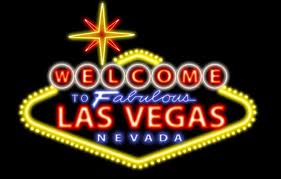Miscalculated Gamble
Every once in a while there are news stories that make you scratch your head and ask why. They elicit a strong gut reaction for a variety of reasons both good and bad. Yesterday an article appeared in the Washington Post discussing a Nevada bill that would expand sports gambling to allow groups to form and make big wagers. In theory, it’s a great idea that gives bettors legal access to Nevada books for placing wagers yet this proposal is fundamentally flawed from it’s inception and doomed to fail unless sportsbook culture in this state changes entirely.
To read the article in it’s entirety click here
Rather than sit on a soapbox and look down my nose at groundbreaking legislation which is aimed to advance our industry I think breaking down quotes and content from the article better illustrates my frustrations and why I don’t see this as a long term solution or feasible in any capacity.
“The bill received its first hearing in a Senate committee Monday as a leading gambling executive projected that Nevada sports books could see action nearly triple in the next five years if it were to become law.
The bill would add “entities” to be formed and authorized to make sports bets. The groups could act as a type of hedge fund and wager big dollars on football, basketball, baseball and other sports. In turn, they could seek out investors to put up money and “leave it up to the expert to make the bet,” Brower said.”
My first question: how would this triple action for the books? I mean sure, it would triple the volume and betting handle that casinos see flowing through at the top line but I can say with 99.9% confidence this wouldnt be profitable for every shop. There’s already a reluctance in Nevada to take action from the sharpest customers at a majority of books so where’s their sudden incentive to take larger bets from the customers they deem undesirable? I’m not sure why sportsbooks, especially those books without the qualified personnel to manage their risk or linesmaking processes, would suddenly feel comfortable with this arrangement. Does the state feel as though these new groups would be formed by 80 year old blue haired ladies looking for an alternative for Mah Jong? I can tell you with confidence my grandma and her friends aren’t looking to get down on a Tuesday night Sun Belt game to help the sportsbook’s bottom line.
Ask Cantor how well the market responded to thier initial IPO considering the business strategy they’ve planned to employ was exactly what’s currently being proposed by the state in a modified capacity: take bigger bets from the wrong customers. Their IPO was instead one that showed since the company was founded in 2004, it had posted net losses of approximately $96.6 million (as of May 30, 2012).
Read the article in its entirety here
I do want to give the lawmakers credit because they understand increased handle leads to more tax dollars which our state desperately needs but they also have to realize every dollar in the sports market isn’t created equally. Books pick and choose who they take action from each day limiting their exposure to the world’s sharpest bettors. This isn’t the same as increasing table game limits statewide where the house advantage is tangible and consistent. Professional sports bettors are out there, there aren’t professional roulette or 3 card poker guys anywhere to be found (if you find one, let me know we can book his action together).
Brower said he didn’t believe allowing large, pooled bets would swing the odds or point spreads in either direction any more than what occurs now when a team is heavily favored.
Wait what? How would large bets coming from sharp bettors not shift the odds or pointspreads? Apparently Brower didn’t talk to anyone offshore that handles action from betting syndicates with regularity and understands they can crush a price faster than an injury to a marquee superstar. I’m also slightly confused as to how this has anything to do with what normally occurs when a team is heavily favored but I digress.
“Supporters of the Nevada bill also said the measure would help the state capture some of the estimated $380 billion bet illegally on sports each year in the U.S.
Nevada books currently see a “handle” — or betting action — of $3.5 billion on sports wagering, Lee Amaitis of Cantor Gaming told the committee. He projected that would grow to $10 billion within five years if entity wagers are allowed. Tax revenue to the state would more than double to roughly $25 million over that time, he said.”
Yet again the numbers being used are unrealistic estimates to think that this new legislation would make a substantial dent in the money now being bet illegally. Don’t believe me? Ask the sharpest bettors why they choose to bet offshore rather than here in Vegas and the list of reasons is endless (note, these statements don’t apply to all books in the state)
Nevada books don’t offer reduced juice
Nevada books don’t offer competitive future prices
Nevada books don’t offer the same limits
Nevada books don’t offer props, niche sports, and other unique markets.
Nevada books require bettors to put their money up front, a far cry from working with a corner book who operates on credit
I can go on and on but it pains me to do so because I got my start in the industry working at a prominent sportsbook. However, the brutal reality here in Nevada is outside of a few trendsetters, the product has largely remained stagnant. Shops aren’t forced to offer competitive products because they have a captive audience and very limited competition for share of wallet. Certain shops are notorious for gouging customers holding north of 50% in futures markets while others simply don’t take limits because their staff isn’t capable of understanding how to use sharp money to the houses’ advantage.
For someone who sees a future in this field, I’m clearly passionate about the state of legalized wagering both here in Nevada and across the States. Legislation to move business forward is a very good thing but if efforts aren’t channeled correctly, we’ll still remain in the stone ages while books all over the world point and laugh at those of us working in the desert.













